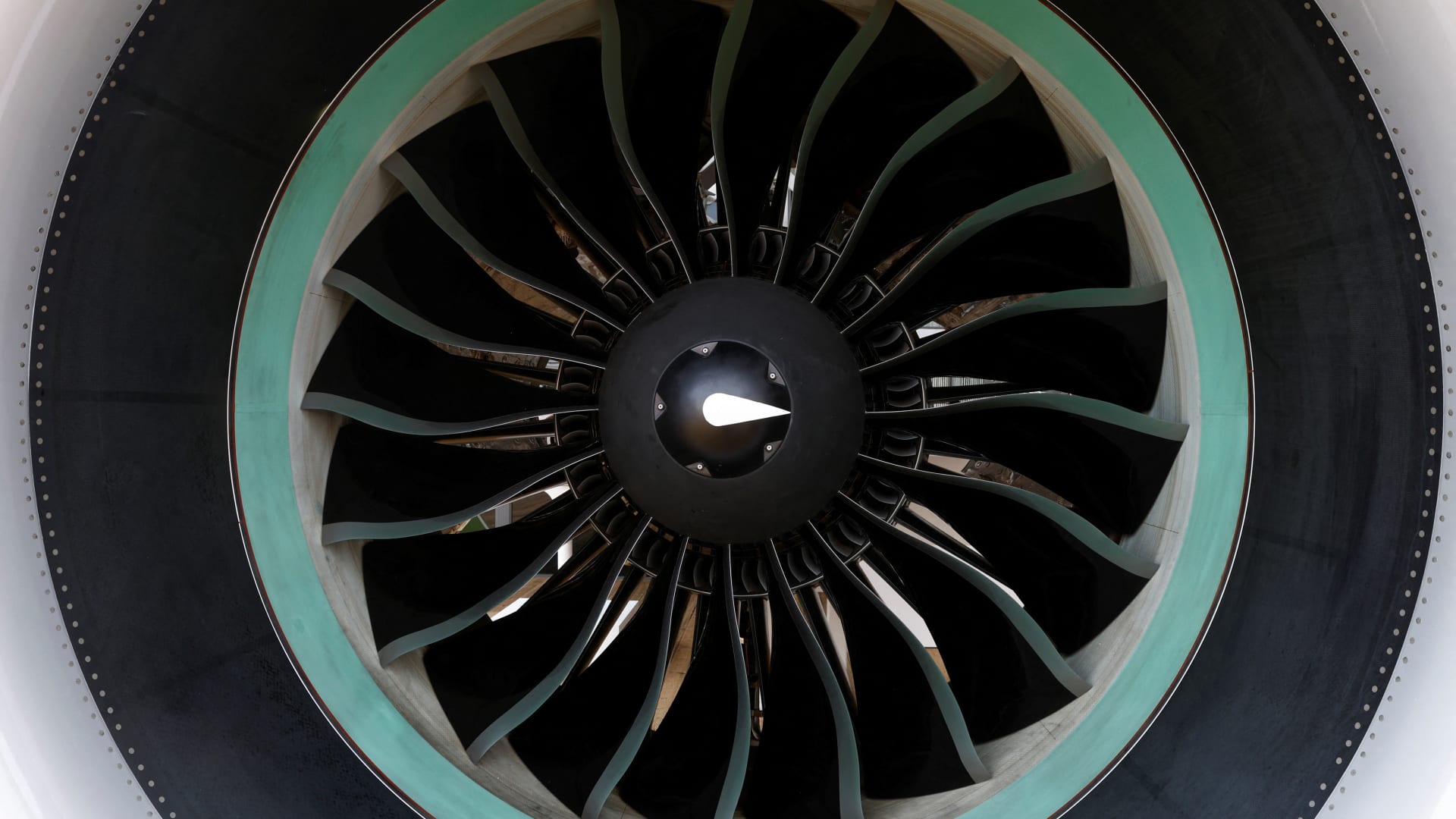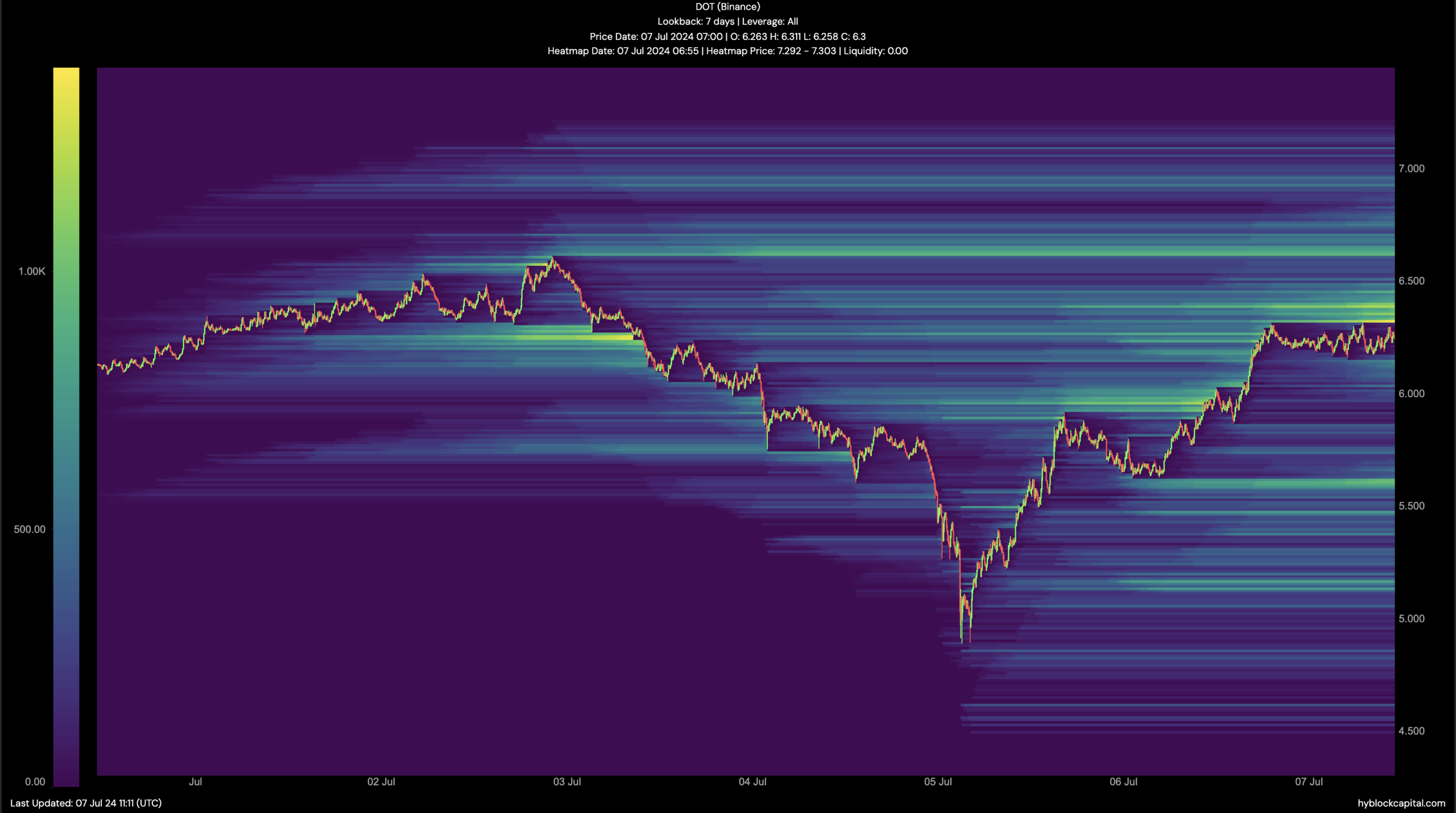
A model of a Pratt & Whitney GTF engine is currently being showcased at the 54th International Paris Air Show in Le Bourget Airport, France, on June 20, 2023.
Image source: Benoit Tessier | Reuters
RTX announced on Monday that it will incur a $3 billion pretax charge this quarter due to an engine manufacturing flaw in its Pratt & Whitney unit. The issue requires accelerated inspections and will mandate the removal of hundreds of aircraft engines for inspections until 2027.
In response to this news, RTX shares decreased by nearly 8% on Monday, reaching their lowest point in over two years at $76.90.
The problem was initially revealed by the company in July and arises from defects in the powder metal used in the manufacturing of certain Pratt & Whitney geared turbofan engines. These defects can lead to cracks. RTX has now determined that approximately 600 to 700 engines, more than initially forecasted, must be removed for shop visits by 2026.
This issue is causing a shortage of aircraft for airlines amidst the recovery in travel following the Covid pandemic.
European budget carrier, Wizz Air, which operates planes with Pratt’s GTF engines, stated on Monday that this problem will result in a 10% reduction in capacity during the second half of fiscal 2024.
Other customers affected by the use of GTF-powered planes include Spirit Airlines and JetBlue Airways. These airlines have not yet commented on the matter.
RTX explained that removing engine components for inspections will create backlogs in their repair facilities. They estimate that it will take up to 300 days, from the time the engines are detached from the wings until they are returned to the airlines.
The company projected that an average of 350 Airbus A320 family planes per year will be grounded from next year until 2026 as a result of this issue.
RTX anticipates that the problem will cost them up to $7 billion. Pratt & Whitney has a 51% stake in the GTF PW1000 engine program, and the cost will be shared with its partners, including Germany’s MTU.
These engines are used in a significant number of Airbus A320neo planes and compete with engines produced by a joint venture between General Electric and Safran of France.
RTX CEO Greg Hayes addressed the issue on Monday during a call with analysts, stating, “To be clear, this latest disruption from the powdered metal contamination is frustrating and will have a significant impact on our customers, on our partners, and on RTX. Still, we are proactively managing this every day by dedicating all the resources needed to ensure that we address this issue in the best possible manner for our customers, our partners, the company, and our shareholders.”
RTX, formerly known as Raytheon Technologies, reaffirmed its adjusted earnings estimate of $4.95 to $5.05 per share for 2023. However, they now expect a $1.5 billion hit to their cash flow in 2025, revising the estimate from an earlier forecast of $9 billion to $7.5 billion.











